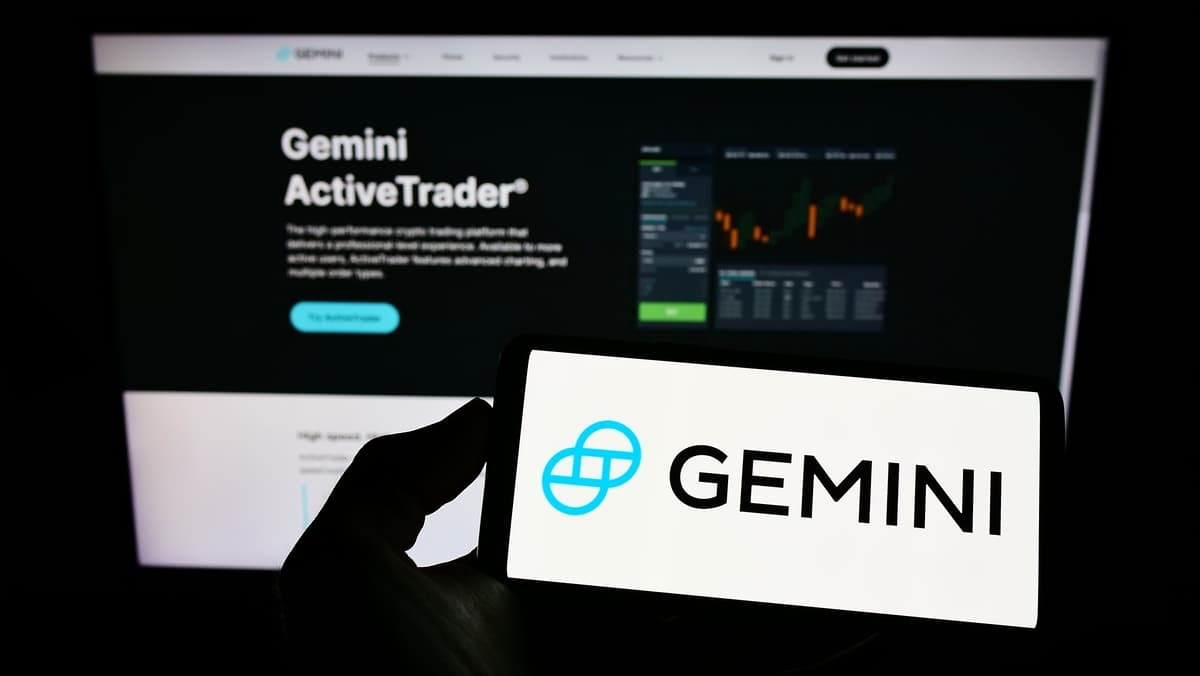A Crypto-Friendly Cabinet and a Wave of IPOs: Is Gemini's Debut Worth Your Investment?
The crypto landscape is undergoing a seismic shift. After a punishing "crypto winter" that tested the resolve of even the most ardent believers, signs of a regulatory spring are emerging. Washington is signaling a more structured approach with a potential stablecoin bill, and a new wave of crypto-native companies is eyeing the public markets. Coinbase (COIN) is the established veteran, Circle (the issuer of USDC) is listed with the ticker CRCL, and Kraken has long been rumored to be preparing for its own debut.
Into this dynamic environment steps Gemini, the cryptocurrency exchange founded by the infamous Winklevoss twins. A potential Gemini IPO would be more than just another stock listing; it would be a bellwether for the "trust and compliance" segment of the industry. For investors, the question is critical: When the time comes, is Gemini a generational opportunity to buy into the future of finance, or is it a high-risk bet on a company facing immense competition?
The Founders' Saga: From Facebook Feud to Crypto Pioneers
You can't discuss Gemini without talking about Cameron and Tyler Winklevoss. Best known for their legal battles with Mark Zuckerberg over the creation of Facebook, the twins took their settlement money and made a massive, early bet on Bitcoin in 2012. As their own founding story recounts, they were fascinated by this new "money for the internet" but horrified by the "Wild West" experience of early exchanges like the now-defunct Mt. Gox.
This experience became Gemini's core mission. While others in Silicon Valley followed the mantra of "move fast and break things," the Winklevoss twins adopted an "ask permission, not forgiveness" ethos. They set out to build a fortress of trust, focusing on four pillars: Product, Security, Licensing, and Compliance. This compliance-first approach has been their key differentiator in the crowded U.S. market, positioning Gemini as the exchange for the cautious, the regulated, and the institutional.
Gemini's Position in a Fierce Market
Gemini's market share has historically trailed behind giants like Coinbase. They have never been the exchange for the widest variety of exotic altcoins or the highest-leverage derivatives. Instead, they've focused on being a reliable, secure, and regulated gateway to major digital assets like Bitcoin and Ether. Their Gemini Dollar (GUSD) stablecoin is a direct product of this, designed to be a fully regulated and transparent digital dollar.
However, this "safety-first" brand has been tested. The collapse of the Gemini Earn program, which was offered in partnership with the now-bankrupt Genesis, dealt a significant blow to the company's reputation and left many users with locked funds. Online forums on Reddit are filled with both praise for Gemini's secure trading platform and frustration from users affected by the Earn debacle. This incident serves as a stark reminder that even in the more regulated corners of crypto, risk is ever-present.
The Broader Context: A Market in Transition
A Gemini IPO cannot be analyzed in a vacuum. Several powerful forces will shape its potential success:
The Coinbase Precedent (COIN): Coinbase's direct listing in 2021 was a landmark moment, but its stock performance has been a roller-coaster, acting as a high-beta play on the price of Bitcoin itself. This is a cautionary tale. Any investment in Gemini's stock will likely be, first and foremost, a bet on the direction of the broader crypto market.
The IPO Wave (Circle, Kraken): The fact that the listing of Circle and potentially Kraken going public are the signals a maturation of the industry. This creates a new class of publicly-traded digital asset companies, giving investors more choice but also increasing the competition for capital. Circle's IPO, in particular, has brought a new focus to the massive potential of the stablecoin market.
The Regulatory Thaw: A clear regulatory framework for stablecoins and digital assets in the U.S. would be a massive tailwind. It would de-risk the sector for institutional investors and could unlock a flood of new capital. A "crypto-friendly" political environment is perhaps the single most important bullish catalyst for the entire sector.
The "Everything Exchange" Threat: The game is evolving. As seen in recent social media chatter, competitors like Coinbase are aggressively pursuing an "Everything Exchange" model—a single platform for trading crypto, tokenized stocks, derivatives, and more, all running 24/7. This vision of a unified financial future puts immense pressure on more specialized exchanges. Gemini will have to prove it can innovate beyond its core offering to compete with these all-in-one financial super-apps.
The Verdict: A Bet on Trust and Timing
So, is a future Gemini IPO worth participating in? The answer is nuanced.
The Bull Case: The bulls on X and other platforms see Gemini as a "flight to quality." They argue that as regulation tightens, the exchanges that prioritized compliance from day one will be the ultimate winners. An investment in Gemini is a bet on the Winklevoss's long-term vision and the idea that trust is the most valuable commodity in finance. If the crypto market enters a new bull run, a regulated and trusted brand like Gemini could be a prime beneficiary.
The Bear Case: The bears point to the Gemini Earn fiasco as a major red flag. They see a company with a smaller market share struggling to compete with the network effects of Coinbase and the innovation of decentralized finance (DeFi). They argue that the stock, like COIN, will be too closely tied to crypto's volatility, offering little in the way of diversification.
Ultimately, an investment in a potential Gemini IPO is a high-risk, high-reward bet on the continued mainstream adoption of cryptocurrency. Its success will depend not just on the company's execution, but on market timing and the shifting sands of regulation. For investors with a high-risk tolerance who believe in the "trust and compliance" thesis for crypto's future, Gemini will be a name to watch very, very closely.


